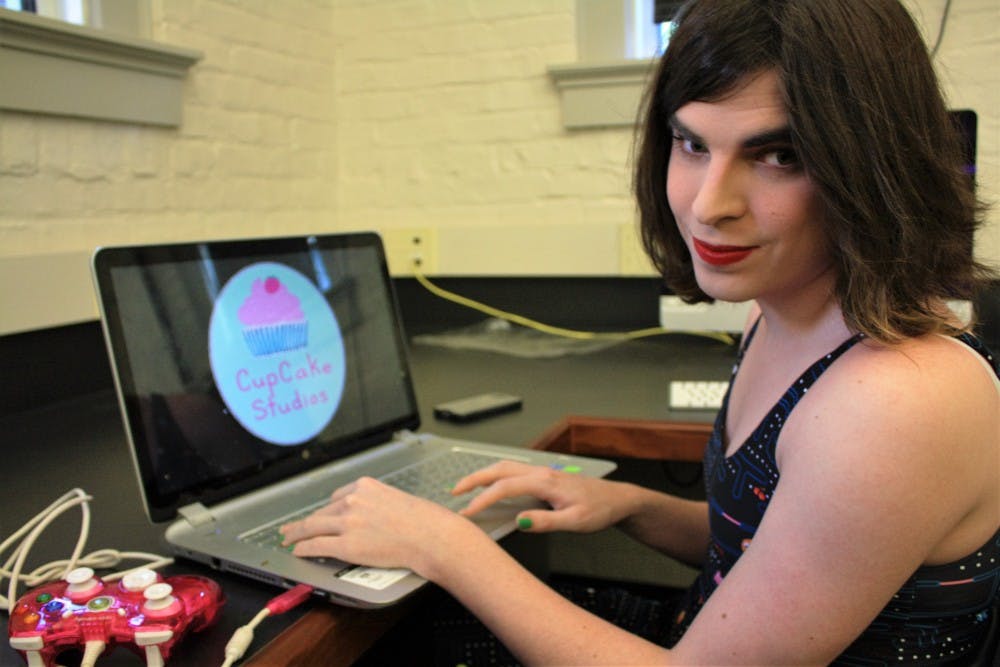Rukia Brooks is a fourth-year computer science student who creates video games.
Her puzzle game "Color Collisions" was selected last year as the best game by a student developer in Indie Bits, the gaming portion of Indie Grits, a Columbia arts festival.
Brooks’ interest in video games began when she and her brothers played "Super Mario Bros." on their dad’s NES from the '80s. She was a bit of an entrepreneur in middle school by selling her games to classmates.
“Play is innate. We do a lot of things by play. It’s how we socialize,” she says. "[Video game designers and developers] take that play and put it into a virtual sphere.”
Gaming has also been a way for Brooks to alleviate stress.
When she got her first smartphone, her foremost priority was to download a "Tetris" app similar to what she used to play on her flip phone. But newer versions are cluttered with advertisements that put her off. “They ruined 'Tetris,'” Brooks says.
Brooks has a taste for simple, yet challenging games. She has a vision to use the medium as a platform for social commentary. The 2012 computer game "Dys4ia" is about the personal experience of a transgender woman undergoing hormone-replacement therapy, and it was influential for Brooks. It helped her realize “games can be more than just play. They can handle serious issues just like any other piece of art.”

She and her game design classmates aim to do just that with their current assignment. Their work in progress is an RPG, or role-playing game, about a woman of color who must return home after embarking on an adventure.
Brooks also applies her commitment to diversity beyond the content of the games she designs and develops. Through a partnership with IT-oLogy, a Columbia based non-profit, Brooks hopes to inspire and empower girls to pursue STEM fields. This April, Brooks will be one of the teachers in a video game workshop for local middle school and high-school aged girls.
The participants will learn the fundamentals of game design from a model similar to "Pac-Man," in which personified cupcakes eat sprinkles and chase the protagonist. Brooks says she hopes the girls will gain new skills and greater self-confidence. Both were essential in her own path.
A critical experience for Brooks has been an email correspondence that she has kept up with a community manager at a game developing company for which she dreams of working someday.
“The worst thing people can do if you contact them is ignore you,” Brooks says.
It is a piece of wisdom that she heeded then and when she first made the workshop pitch at IT-oLogy. Brooks aspires to continue making games that exhibit her standards of simplicity, inspire others and challenge societal norms.
Correction: The original version of this article referred to the main character in Rukia's class assignment as a "colored female." This has been changed to "woman of color" as this is the appropriate term. Garnet & Black Magazine apologizes for this error.



